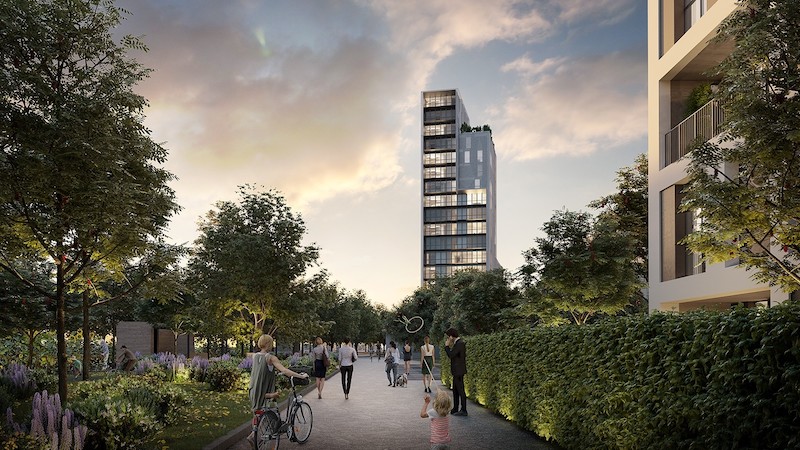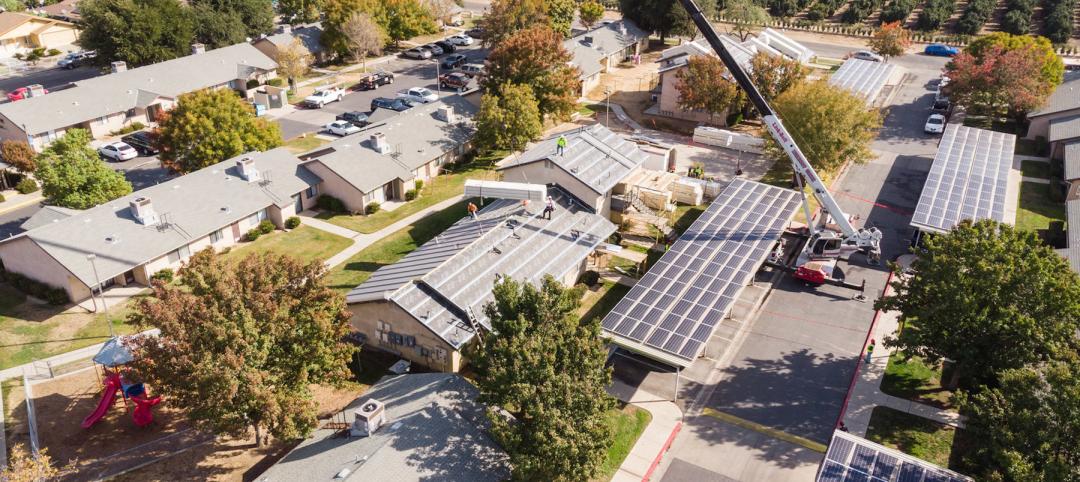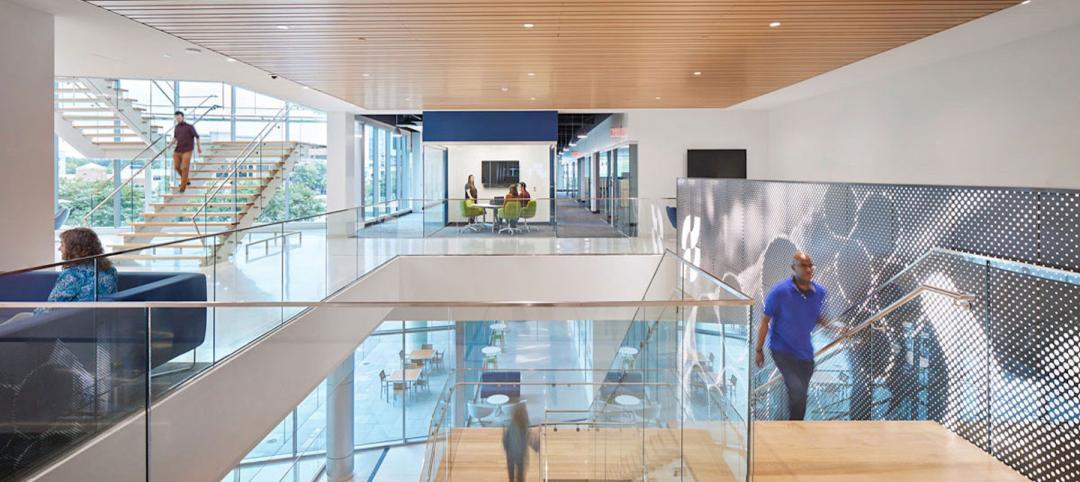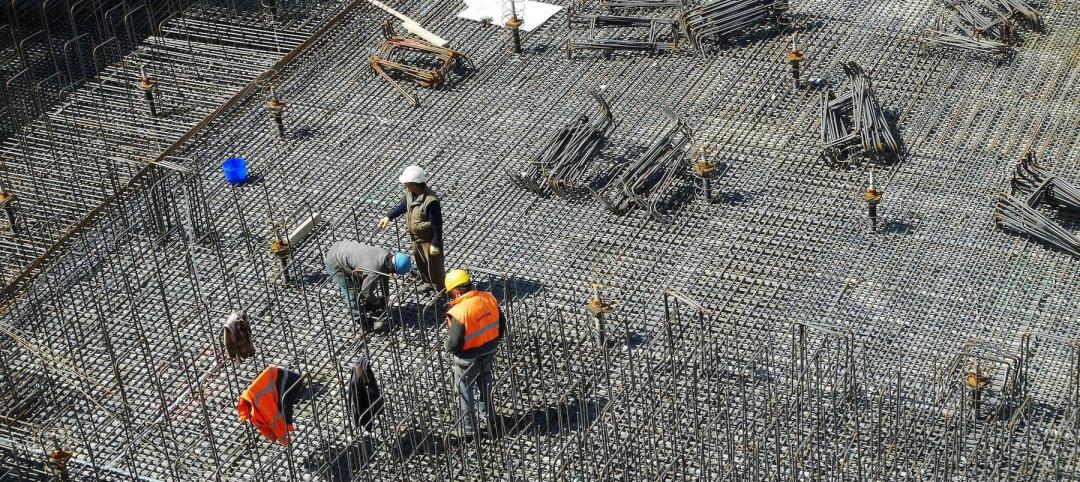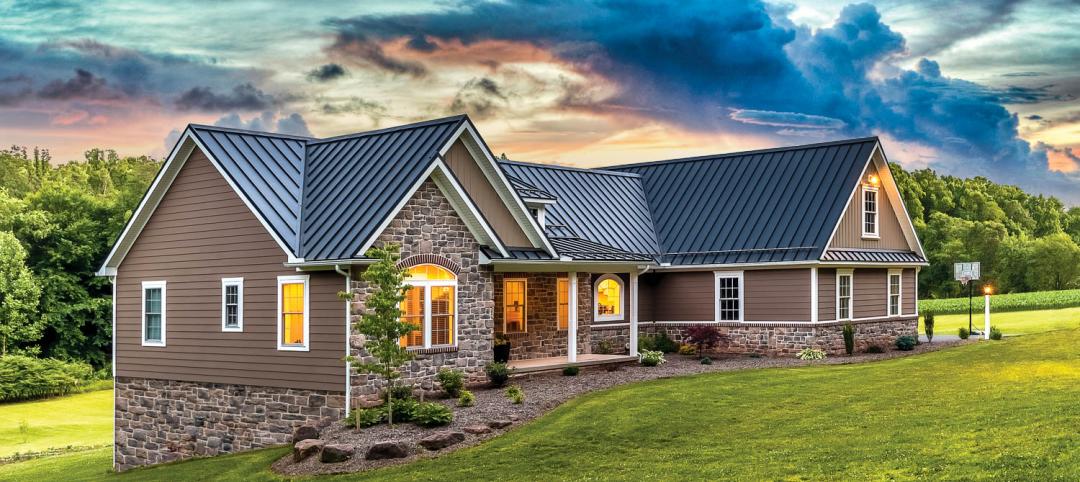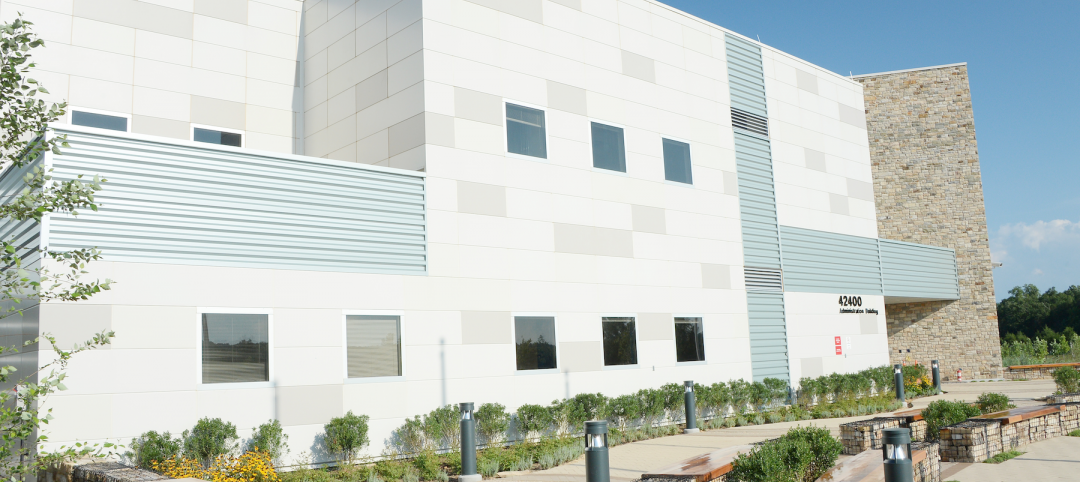C40 Reinventing Cities, a competition that is part of Milan’s strategic plan to transform underused railway areas on the site of a former freight terminal, recently selected L’INNESTO as its winning project.
The L’INNESTO project area spans 62,000 sm and comprises three parts: the former railway station next to the Greco-Pirelli station, a green area on Via Breda Street, and an abandoned track overlooking the west of theBicocca district.
Upon completion, L’INNESTO will be Italy’s first carbon-neutral social housing project. The project will use a fourth generation district heating system connected to the neighborhood and powered by on-site renewable sources. With a target of 60% green space, L’INNESTO will limit space for cars and prioritize bike parking, electric car charging terminals, and a shared neighborhood car fleet. The design also includes a Human Adaptive Zone, a collaborative neighborhood with an agricultural heart. Rainwater will be 100% reused, which will save 30% on drinking water consumption. 15% of wastewater is treated directly on site.
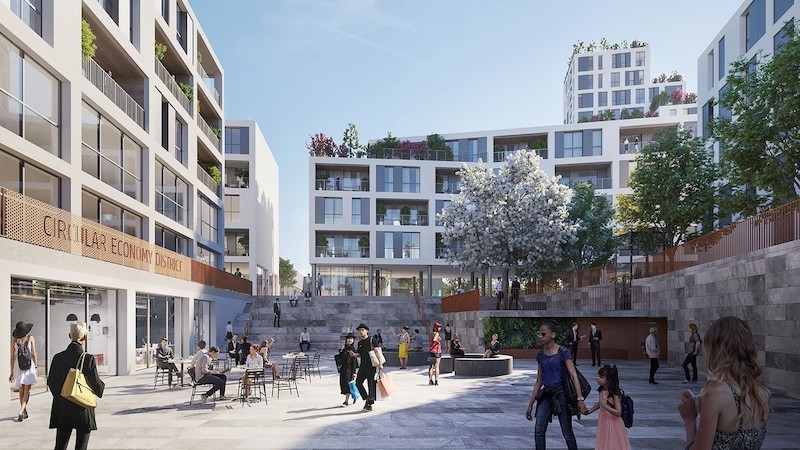
The project’s CO2 balance sheet takes into account the construction and the following 30 years of management. L’INNESTO has been designed to achieve a zero balance throughout its life cycle.
The project was proposed by a team including: Fondo Immobiliare Lombardia, InvestiRE SGR (manager), Barreca & La Varra (architect and landscape design), Arup Italia (urban and environmental design), and Stantec (site remediation, wastewater and rainwater management).
Related Stories
Energy | Jul 13, 2022
Electrification of buildings, new and old, furthers environmental responsibility and equity
It’s almost a cliché in our industry, but nonetheless: The greenest building is the one that is already built.
Codes and Standards | Jul 12, 2022
USGBC sets out principles for LEED’s future
The U.S. Green Building Council recently published a report containing principles outlining how LEED will evolve.
Building Team | Jul 12, 2022
10 resource reduction measures for more efficient and sustainable biopharma facilities
Resource reduction measures are solutions that can lead to lifecycle energy and cost savings for a favorable return on investment while simultaneously improving resiliency and promoting health and wellness in your facility.
Building Team | Jul 1, 2022
How to apply WELL for better design outcomes
The International WELL Building Institute (IWBI) cites attracting top talent, increasing productivity, and improving environmental, social or governance (ESG) performance as key outcomes of leveraging tools like their WELL Building Standard to develop healthier environments.
Green | Jun 22, 2022
The business case for passive house multifamily
A trio of Passive House experts talk about the true costs and benefits of passive house design and construction for multifamily projects.
Sustainable Design and Construction | Jun 14, 2022
For its new office, a farm in California considers four sustainable design options, driven by data
The architect used cove.tool’s performance measurement software to make its case.
Building Team | Jun 13, 2022
Partnership rethinks emergency shelters to turn them into sustainable, resilient homes
Holcim and the Norman Foster Foundation have struck a partnership to rethink emergency shelters to turn them into sustainable and resilient homes.
Green Specifications | May 12, 2022
MG2’s Sustainable Materials Evaluation System
Learn how MG2’s Sustainable Materials Evaluation System helps clients, prospects, and staff choose the most environmentally feasible materials for their building projects. Candon Murphy, LEED GA, Assoc. IIDA, Design Lab Manager and Materials & Sustainability Specialist with MG2, speaks with BD+C Executive Editor Rob Cassidy.
Sponsored | BD+C University Course | May 5, 2022
Designing with architectural insulated metal wall panels
Insulated metal wall panels (IMPs) offer a sleek, modern, and lightweight envelope system that is highly customizable. This continuing education course explores the characteristics of insulated metal wall panels, including how they can offer a six-in-one design solution. Discussions also include design options, installation processes, code compliance, sustainability, and available warranties.


